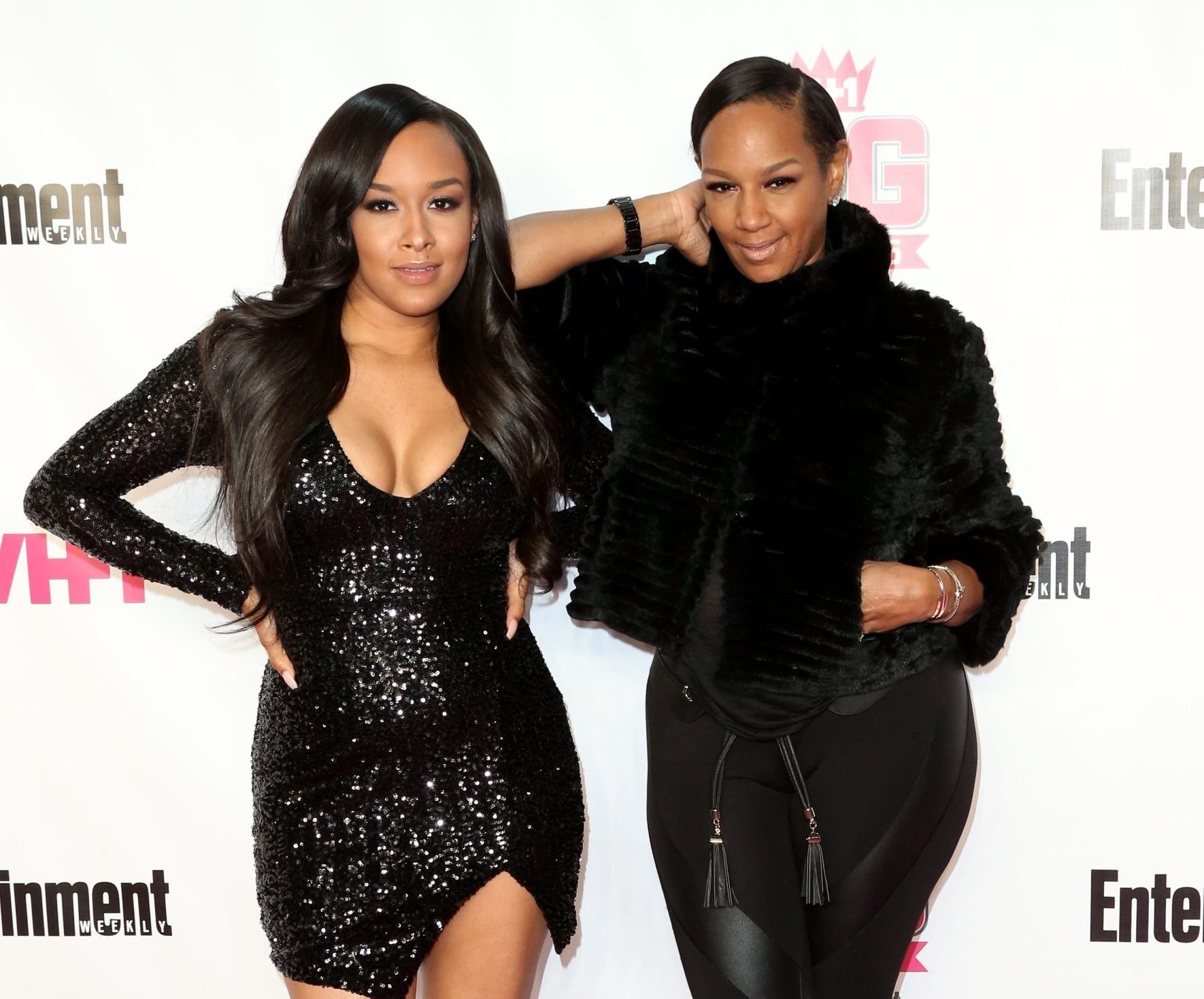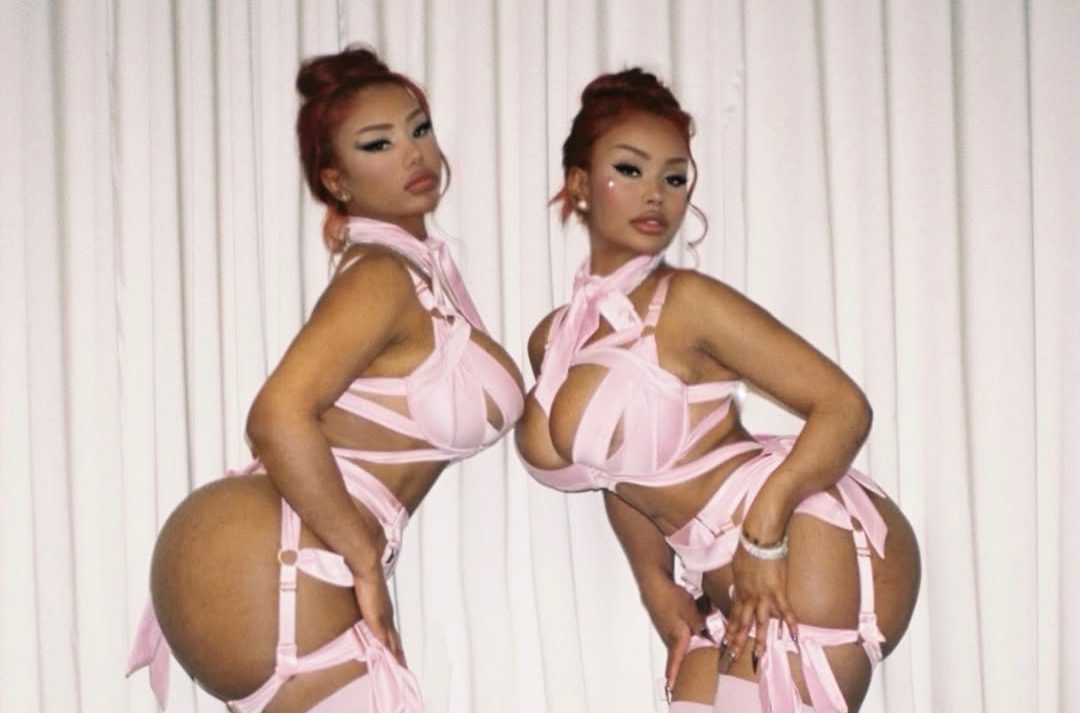Let me preface this article by stating that I don’t condone violence of any kind, mainly when it occurs between family members; however, I also don’t believe in being provoked repeatedly and being disrespected constantly, and not protecting oneself.
In the latest episode of the hit VH1 reality television show Basketball Wives LA, veteran cast member Jackie Christie, an entrepreneur and the wife of retired basketball player and current NBA coach for the Sacramento Kings, Doug Christie, was shown in a physical altercation with her daughter and fellow cast member, Chantel Christie.
Article continues after video.
For longtime viewers of the show, the tension between the mother and daughter comes as no surprise, but viewers and fans of the show were especially taken aback by the fight between the two. In the released footage, you can see them both in a heated argument. When Jackie decides to walk away and not engage in the verbal altercation, her daughter approaches and later pushes her mother, prompting Jackie to slap her (we’ve all seen the viral meme at this point).
This action, of course, had the internet in a tizzy, with many fans defending Jackie’s decision to strike her daughter, as they argued that she had been provoked, taunted, and spoken to disrespectfully by her daughter the entire season. I understand that viewpoint, but I also have to think about why Chantel displayed this behavior in the first place, which is a bigger issue that’s overlooked – toxic family dynamics and underlying trauma.
It’s no secret that both of Jackie’s daughters, Chantel and her eldest child, Ta’Kari, have claimed to experience neglect and emotional abuse in their childhoods, as it’s been discussed throughout the seasons and years as a salient storyline. Still, my question to Chantel is, why come on the show if there’s so much resentment towards her mother? Why not resolve family drama, hurt feelings, and deep-seated trauma behind closed doors and off-screen, with a trust therapist or family-trauma-based professional?
Article continues after video.
The only answer I can come up with is that she might’ve wanted her mother to feel the pain, resentment, and hurt she’d been carrying all these years, and for her feelings to be heard on her mother’s very public platform. Of course, I can’t speak for Chantel or her sister, Ta’Kari, but it’s clear that they’ve experienced a traumatic childhood: from them both saying that Jackie wasn’t as present of a mother to claims of emotional abuse, they both seem to have a deep mother-wound.
However, both Jackie and Chantel need to work together to resolve their issues, rather than resorting to screaming matches, dismissive walkouts, and physical altercations. Chantel thought her voice and emotions would be heard and affirmed on a public platform like a reality show, instead of doing the needed work with a therapist off-camera with her mother and family. Jackie also needs to be more open, understanding, and empathetic towards her daughters’ feelings about their childhood, as no one should feel dismissed, gaslit, or brushed aside. Neither of the ladies’ approaches is at all effective and, instead, rather harmful.
So what happens now? There’s public fallout, compounded hurt feelings, embarrassment, and further dissension, but did anything really get solved? The answer is no, outside of an emotional release for Chantel. As holistic therapist, Rikki McCoy says, getting into a physical altercation with your mother or daughter isn’t just a moment of emotional overwhelm. It’s a profound rupture in a relationship that’s supposed to feel safe. “It’s not just about the fight itself; it’s about what the fight represents: years of unspoken pain, poor boundaries, generational trauma, and a family system that may normalize dysfunction,” she states.
McCoy believes that when things escalate to physical violence, it signals that the emotional regulation and communication tools needed to feel seen, heard, and respected have broken down. It leaves emotional bruises that often last longer than the physical ones (shame, guilt, distrust, abandonment). “These moments shine a light on deeper issues: control, codependency, suppressed anger, or even unhealed wounds from childhood. It’s a sign that healing is overdue, and not just individually, but within the family system as a whole,” she states.
As we know, the rift between Jackie and her daughters didn’t just happen overnight. It’s been building for years, and it shows. According to psychotherapist Meghan Watson, “When conflict between a parent and child — in this case, a mother and daughter — escalates to physical violence, it’s often not about one specific incident. Relationship breakdowns like this typically develop over weeks, months, or even years. It’s often a glaring sign that communication, safety, and trust have eroded over time. There are likely deep wounds beneath what people are seeing on screen.”
Watson believes that from a relational-cultural therapy perspective, a history of emotional disrepair, unmet needs, and a lack of mutual empathy are all pieces of the puzzle that likely played a significant role in the escalation of emotional and physical harm. “In my therapy work, I often hear and see the impact of family dynamics where emotional expression has been unsafe or dismissed. These dynamics aren’t unique to Jackie and her daughter — many adults are left reckoning with the harm caused by parents who were doing the best they could, and still caused pain,” she states.
Watson agrees with me that this kind of rupture is troubling — but unfortunately, it resonates with many people watching who relate to the toxic generational patterns they’ve been trying to break.
As for a solution for the Christies? Healing these toxic dynamics requires more than mere reconciliation. It involves accountability, insight into underlying patterns, a commitment to repair in moments of rupture, emotional regulation, safety, and an understanding that rebuilding trust is a slow, layered, and meaningful process.
Healing begins with acknowledging the harm, seeking safety, and undertaking the difficult work of breaking these toxic cycles for ourselves and future generations.
We wish them all collective healing upon reflection and several therapy sessions.







